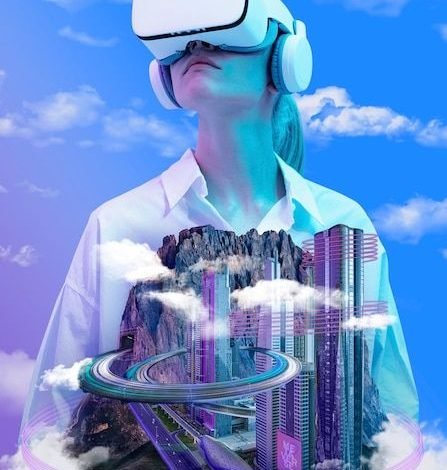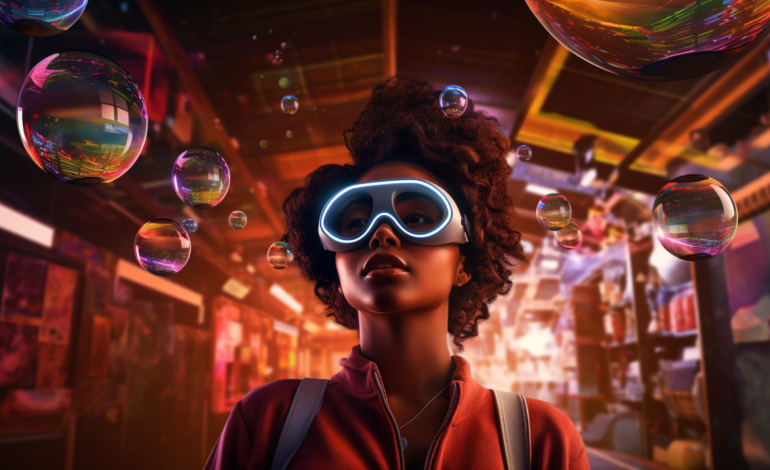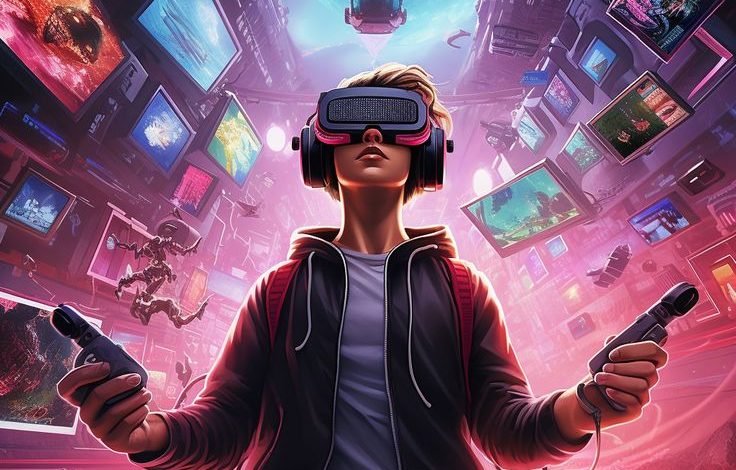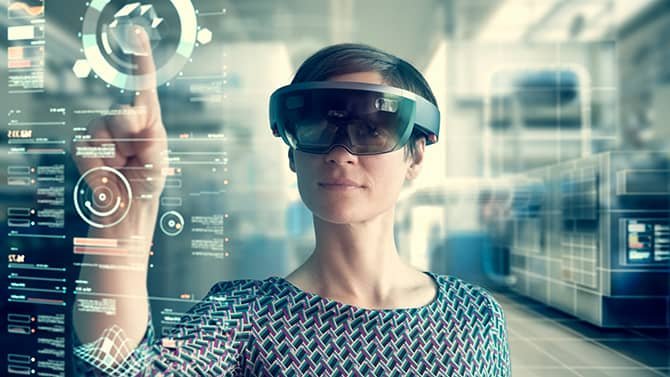The Future of VR: Trends and Innovations

Introduction
Virtual Reality (VR) has emerged as a transformative technology, offering immersive experiences across various industries. From gaming to healthcare, VR is revolutionizing how we interact with digital content. In this article, we’ll explore the current state of VR, emerging trends, innovations, and the future landscape of this dynamic technology.
Current State of VR
Adoption and Growth
The adoption of VR technology has been steadily increasing, driven by advancements in hardware and software. Consumers are embracing VR headsets for gaming, entertainment, and even productivity applications. Companies like Oculus, HTC, and Sony have played pivotal roles in popularizing VR devices.
Key Players and Platforms
A handful of companies dominate the VR market, each offering their own ecosystem of VR content and experiences. Oculus Quest, PlayStation VR, and HTC Vive are among the leading platforms, providing a diverse range of applications and games to users.
Trends in VR
Advancements in Hardware
Hardware innovations continue to enhance the VR experience, with improvements in display resolutions, field of view, and motion tracking capabilities. The introduction of standalone VR headsets has made VR more accessible to a broader audience, eliminating the need for external sensors or a powerful PC.
Growth in VR Content
The availability of high-quality VR content is crucial for driving adoption. Developers are creating immersive games, educational experiences, and virtual tours that showcase the potential of VR. Moreover, the rise of user-generated content platforms like VRChat has fueled community-driven VR experiences.
Social VR Experiences
One of the most exciting trends in VR is the emergence of social experiences. Platforms like Rec Room and AltspaceVR enable users to socialize, collaborate, and attend events in virtual environments. These social VR experiences offer a glimpse into the future of online interaction.
Innovations in VR
VR in Healthcare
VR technology is revolutionizing healthcare by providing immersive training simulations for medical professionals and therapeutic experiences for patients. From surgical simulations to pain management applications, VR has the potential to improve medical outcomes and patient care.
VR for Education and Training
In the field of education, VR is transforming how students learn and engage with course material. Virtual classrooms, interactive simulations, and immersive historical experiences are just a few examples of how VR is enhancing education. Similarly, VR is being used in corporate training programs to simulate real-world scenarios and improve employee skills.
VR in Entertainment
Entertainment industries are embracing VR as a new medium for storytelling and immersive experiences. VR games, interactive films, and virtual concerts offer audiences a unique form of entertainment that blurs the line between reality and fiction. As VR technology evolves, we can expect to see more innovative content and experiences in the entertainment sector.
Challenges and Opportunities
Technical Challenges
Despite its potential, VR still faces technical challenges such as motion sickness, display latency, and hardware limitations. Addressing these challenges requires ongoing research and innovation to improve the overall VR experience.
Accessibility and Affordability
Accessibility and affordability remain significant barriers to widespread VR adoption. High-end VR headsets can be expensive, and not everyone has access to the necessary hardware to experience VR fully. However, the introduction of standalone and budget-friendly VR devices is making VR more accessible to a broader audience.
Business Opportunities in VR
The growing popularity of VR presents lucrative business opportunities across various industries. From VR content creation and development to VR arcades and immersive experiences, entrepreneurs are exploring innovative ways to capitalize on the VR market.
Future of VR
Predictions and Projections
Experts predict that VR technology will continue to evolve rapidly, with improvements in hardware, software, and content creation tools. As VR becomes more mainstream, we can expect to see a broader range of applications and experiences that leverage the full potential of VR technology.
Potential Impact on Society
The widespread adoption of VR could have profound implications for society, affecting how we work, communicate, and experience entertainment. VR has the potential to reshape industries, improve collaboration, and provide new avenues for creativity and expression

.
Integration with Other Technologies
VR is not an isolated technology but rather a part of a broader ecosystem of emerging technologies. Integration with augmented reality (AR), artificial intelligence (AI), and haptic feedback systems will further enhance the immersive VR experience, opening up new possibilities for innovation and creativity.
Conclusion
In conclusion, the future of VR is bright and full of exciting possibilities. From advancements in hardware to innovative content creation, VR is poised to transform industries and redefine how we interact with digital content. As technology continues to evolve, we can look forward to a future where VR plays a central role in shaping our digital experiences.





